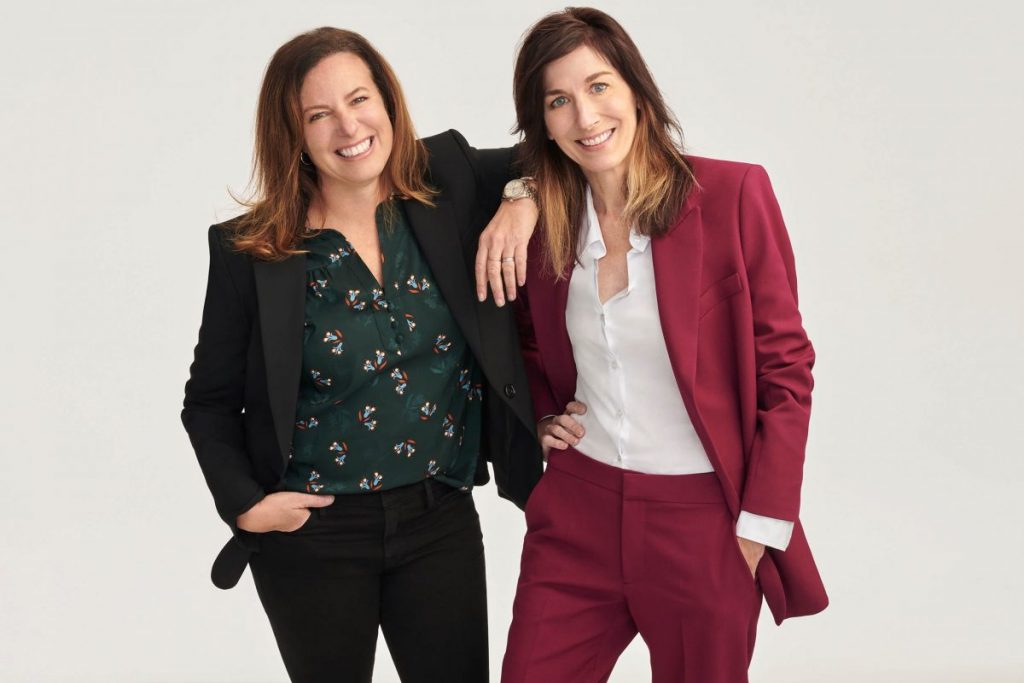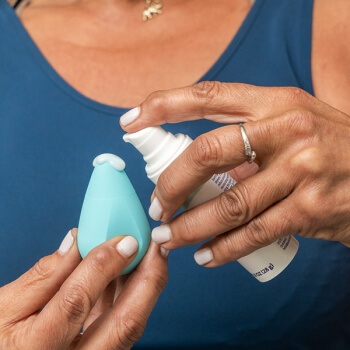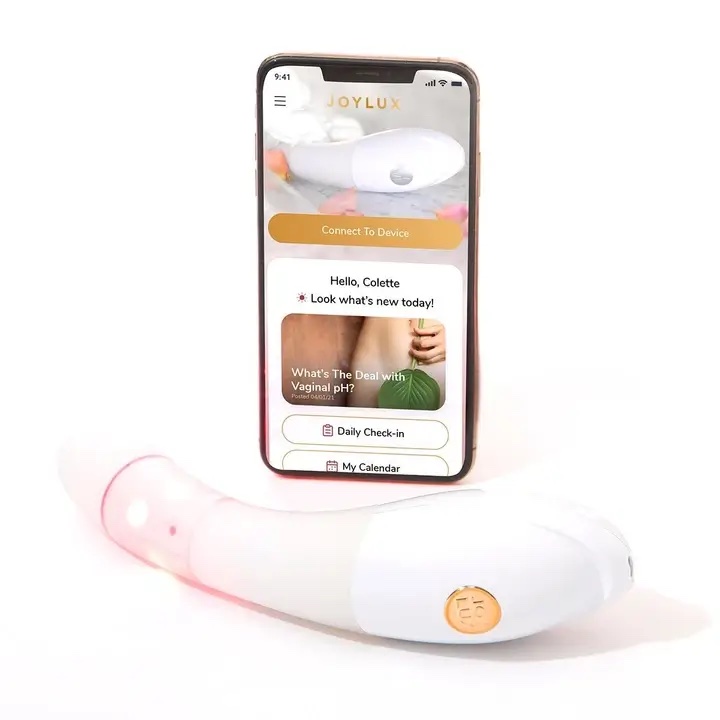
“Aging millennials are not going to stand for this.”
That was, more or less, the successful pitch that Michelle Jacobs, 49, and Sally Mueller, 57, used this past year to get investors to back their startup, Womaness, which offers an array of “radiant, dynamic” products for women 50 and older. The so-called menopause market — currently made up of about 50 million U.S. women — is worth $600 billion, by some industry estimates, and it’s historically been overlooked, underserved and under-loved.
But that’s about to change, the Womaness co-founders pitched, as the first millennials turn 40 this year — and begin to experience the first symptoms of perimenopause, which can include vaginal dryness, brain fog, hot flashes, sleep issues and low libido. The average age for menopause itself is 51.
“A huge part of our pitch was that … 6,000 women go into menopause each day, yet money isn’t being spent on her,” Jacobs says. “Advertising dollars aren’t being spent on her. Medical research dollars aren’t being spent on her.” And the stigma and silence that have shrouded menopause for centuries? Millennials won’t have that. The generation born after Gen X “will be very out and vocal. They are trying to break down all these stereotypes and taboos,” Jacobs says.
Investors, including the male-led Obvious Ventures and Unilever Ventures, agreed, pumping over $4 million into Womaness. The company debuted its moisturizers, facial treatments, wipes, supplements and cooling mist in Target this spring, part of its strategy to be a mass-retail brand in an untapped market segment.
Primed For Growth
The successful launch of Womaness illustrates a sea change that is happening — albeit slowly — in the beauty and wellness industries, where the dewiness of youth has long been celebrated and the needs of older women have, at best, been viewed as embarrassing or unsexy.
The reality, however, is clear: “Every woman will experience menopause, which lasts on average 4 to 10 years, and costs an average of $20,000 in trial-and-error spending on prescriptions, doctor visits, treatments, devices and products,” according to Female Founders Fund, a rare women-led venture capital firm that has helped lead the investment in women-led startups that focus on women’s health. It’s a “global market opportunity in a nascent stage, primed for exponential growth.”
While “femtech” — generally, technology that supports women’s health — has enjoyed a flush of investment in recent years, most of the dollars have gone toward startups that focus on reproductive health, such as ovulation monitoring or period tracking. Only 5 percent of the femtech startups that raised $500 million in 2019 address older women’s needs, according to PitchBook data.
And of course, menopause startups receive only a fraction of what aging men’s health startups rake in. “For comparison Hims, just one company that targets erectile dysfunction among other male concerns, has raised nearly $160 million and was most recently valued at $1.6 billion,” the Female Founders Fund notes.
One of the first menopause startups to break through in 2019 was Kindra, spun out of Procter & Gamble’s P&G Ventures arm and venture studio M13. The startup, led by CEO Catherine Balsam-Schwaber, sells estrogen-free products — its most popular is a daily vaginal lotion — and aims to demystify, destigmatize and normalize menopause.
“At the very start of the fundraising process, I encountered teams that would say what we were developing was a ‘niche’ product,” Balsam-Schwaber says. “But what we’re talking about is a shared experience that happens with half the world’s population.” Not exactly niche, she argued.

Kindra closed a $4.5 million seed round in June — perhaps, not surprisingly, because it piqued the interest of female investors including Female Founders Fund, Primetime Partners (co-founded by SoulCycle executive Abby Miller Levy), sisters Anne and Susan Wojcicki, and Katie Couric Media.
Lead investor Female Founders Fund said it picked Kindra over other startups in the menopause space because it had the most extensive scientific research going into its product development. “Women are concerned about hormones and have a hard time finding products that work,” the fund said. In addition to Balsam-Schwaber’s leadership, “we were drawn to … the efficacy and research behind Kindra’s products.”
The science is largely a result of Kindra’s connection to Procter & Gamble, the consumer product giant that has spent decades researching and testing skincare products. Its venture arm works with entrepreneurs to create new brands, much like a research and development relationship. An area of focus in recent years has been older women’s healthcare, including fatigue, hot flashes and incontinence, according to Betsy Bluestone, a senior director at P&G Ventures.
“There’s no shortage of problems to be solved,” Bluestone says. And unlike even 5 years ago, “there’s been a lot of activity in the menopause arena.” She attributes the new interest to disruption caused by the #MeToo and TimesUp movements — and a society-wide recognition that women deal with more than periods, pregnancy and child care. While millennials will not go quietly into menopause, there’s also just “an increasing number of women in the workforce who are mad as hell and not going to take it anymore,” she says.
Beyond Lotions and Supplements…
While Womaness and Kindra focus on lotions and supplements, another startup, Joylux, sells a “life-changing” high-tech product called the vFit that aims to improve women’s pelvic floors and vaginal function. Gwyneth Paltrow’s Goop is a fan, as are investors — the company has raised about $16 million to date.
Back in 2013, founder Colette Courtion, a serial entrepreneur who had worked in medical aesthetics, figured that the technology used to tighten skin on the face could also be used for vaginal tissue and came up with the vFit — a device that fits in the vagina and works through a combination of light, heat and vibration. The vFit is designated as a low-risk general wellness device by the Food and Drug Administration.
Courtion said she was originally inspired to create the device to improve post-pregnancy bladder control. When she was pregnant, “my girlfriends shared with me, ‘be prepared to pee your pants every time you sneeze,'” she recalls. “I was like, ‘What? I thought you just gained weight!”
The vFit, which sells for $395, has morphed into a device that also aids menopausal women who want to “rebuild collagen and elastin in the tissue,” she says. “The world is starting to become more aware of these problems. Covid certainly amplified this, with a whole message of self-care and self-love.”

Joylux recently introduced an app that pairs with the device and provides menopausal symptoms tracking and educational information. “Our vision is to use the data to personalize the experience for women, so that the treatment is really geared toward what they are going through,” Courtion says.
While she is encouraged by the new focus on the needs of older women, Courtion says there are still substantial roadblocks. “The media talks about how big of an opportunity this is, but at the end of the day, it’s not really what the reality is,” she says. “Funding is tough.” Most of the money that Joylux has raised is from “angel investors and from women, who totally get what we’re doing.”
Advertising remains a challenge as well, particularly on Facebook, “where talking about vaginas is not allowed,” Courtion says. “Initially, Facebook blocked us. They thought of us as being pornographic.” The startup has figured out a workaround, by running ads that don’t specifically mention the product — but that irritates Courtion who says Joylux can’t accomplish “quite frankly what male-focused companies can achieve. Erectile dysfunction? They’re able to say it all. Why can’t we? It’s a constant battle.”
As an alternative, Joylux has grown its consumer base by selling through doctors. The company has over 1,000 medical professionals recommending its products, which are sold in over 400 doctor’s offices, according to Courtion.
What the Future Holds
Aside from startups selling products, a number of new resources are helping “normalize” menopause — from the Happy Menopause podcast with nutritional therapist Jackie Lynch, to books such as “The Menopause Manifesto” by Dr. Jen Gunter and “Great Sex Starts at 50” by sex expert Tracey Cox. Celebrities such as Stacy London are getting involved with menopause companies. And on social media, influencers like Dr. Mary Claire Haver and Dr. Louise Newson are providing short tips, sometimes set to catchy music.
But while there is a cultural shift happening, “I don’t think we’re there yet,” says Womaness’s Jacobs. “There are women who don’t want to reveal their age. And women who don’t want to admit they’re in menopause.” At Kindra, Balsam-Schwaber says more open communication needs to happen. “The first step is really getting people talking about menopause and being comfortable talking about menopause,” she says. “We have to change the culture around menopause and the only way to do that is to get women talking. And physicians and health and wellness experts.”
Once all that happens, more innovation will happen … a lot more innovation, predicts Bluestone at P&G Ventures. “There are fertile spaces to work with in the aging world.”




